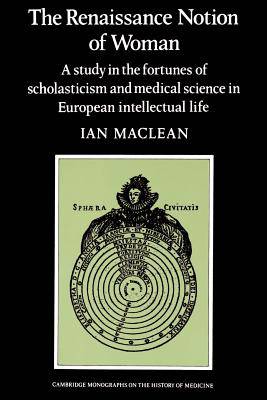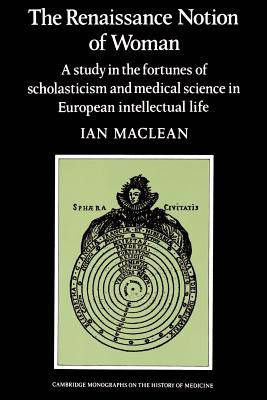
Je cadeautjes zeker op tijd in huis hebben voor de feestdagen? Kom langs in onze winkels en vind het perfecte geschenk!
- Afhalen na 1 uur in een winkel met voorraad
- Gratis thuislevering in België vanaf € 30
- Ruim aanbod met 7 miljoen producten
Je cadeautjes zeker op tijd in huis hebben voor de feestdagen? Kom langs in onze winkels en vind het perfecte geschenk!
- Afhalen na 1 uur in een winkel met voorraad
- Gratis thuislevering in België vanaf € 30
- Ruim aanbod met 7 miljoen producten
Zoeken
The Renaissance Notion of Woman
A Study in the Fortunes of Scholasticism and Medical Science in European Intellectual Life
Ian MacLean
€ 64,95
+ 129 punten
Omschrijving
This study of the world of scholarship and scholarly texts in the Renaissance, the so-called respublica literaria, affords insights into the intellectual infrastructure and modes of thought of the period by its examination of contemporary attitudes towards women. It addresses the questions: What is the notion of woman to be found in Renaissance texts, and how does it evolve? What is the relationship between the notion of woman and that of sex difference, and how is sex difference related in turn to other differences and to the concept of difference itself? Theology, medicine, ethics, politics, and law are examined in succeeding chapters. The threads of the investigation are then drawn together and Dr Maclean shows how the notion of woman was influenced by both forces of conservatism and forces which fostered change, forces which were to be found both inside the confines of intellectual life and beyond them. The final section offers a context for the understanding of European Renaissance feminism and sketches its connections with social and political evolution, humanist scholarship, religious thought and finally problems of language and expression.
Specificaties
Betrokkenen
- Auteur(s):
- Uitgeverij:
Inhoud
- Aantal bladzijden:
- 128
- Taal:
- Engels
- Reeks:
Eigenschappen
- Productcode (EAN):
- 9780521274364
- Verschijningsdatum:
- 17/03/1983
- Uitvoering:
- Paperback
- Formaat:
- Trade paperback (VS)
- Afmetingen:
- 150 mm x 224 mm
- Gewicht:
- 204 g

Alleen bij Standaard Boekhandel
+ 129 punten op je klantenkaart van Standaard Boekhandel
Beoordelingen
We publiceren alleen reviews die voldoen aan de voorwaarden voor reviews. Bekijk onze voorwaarden voor reviews.









